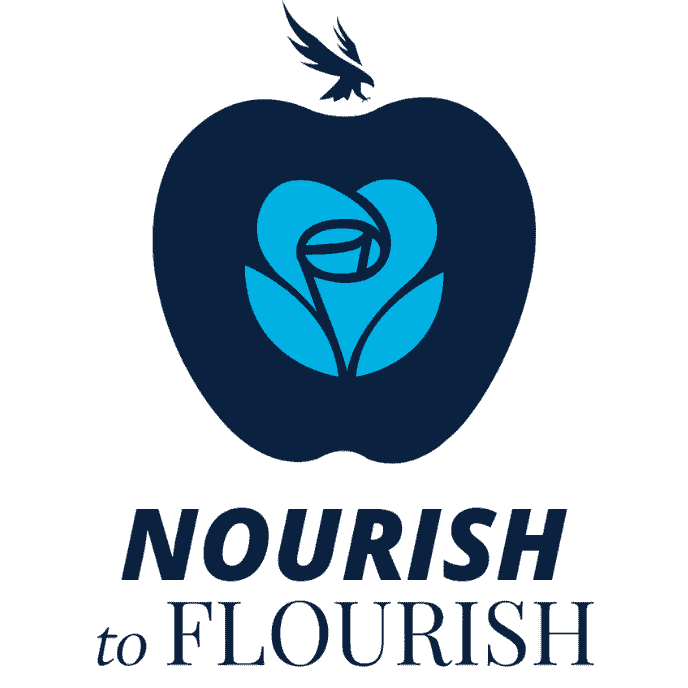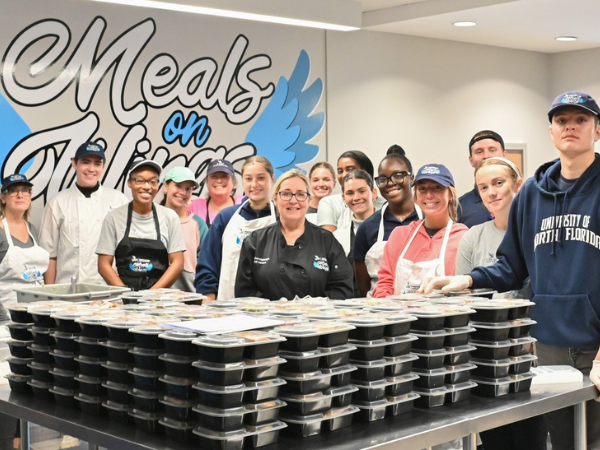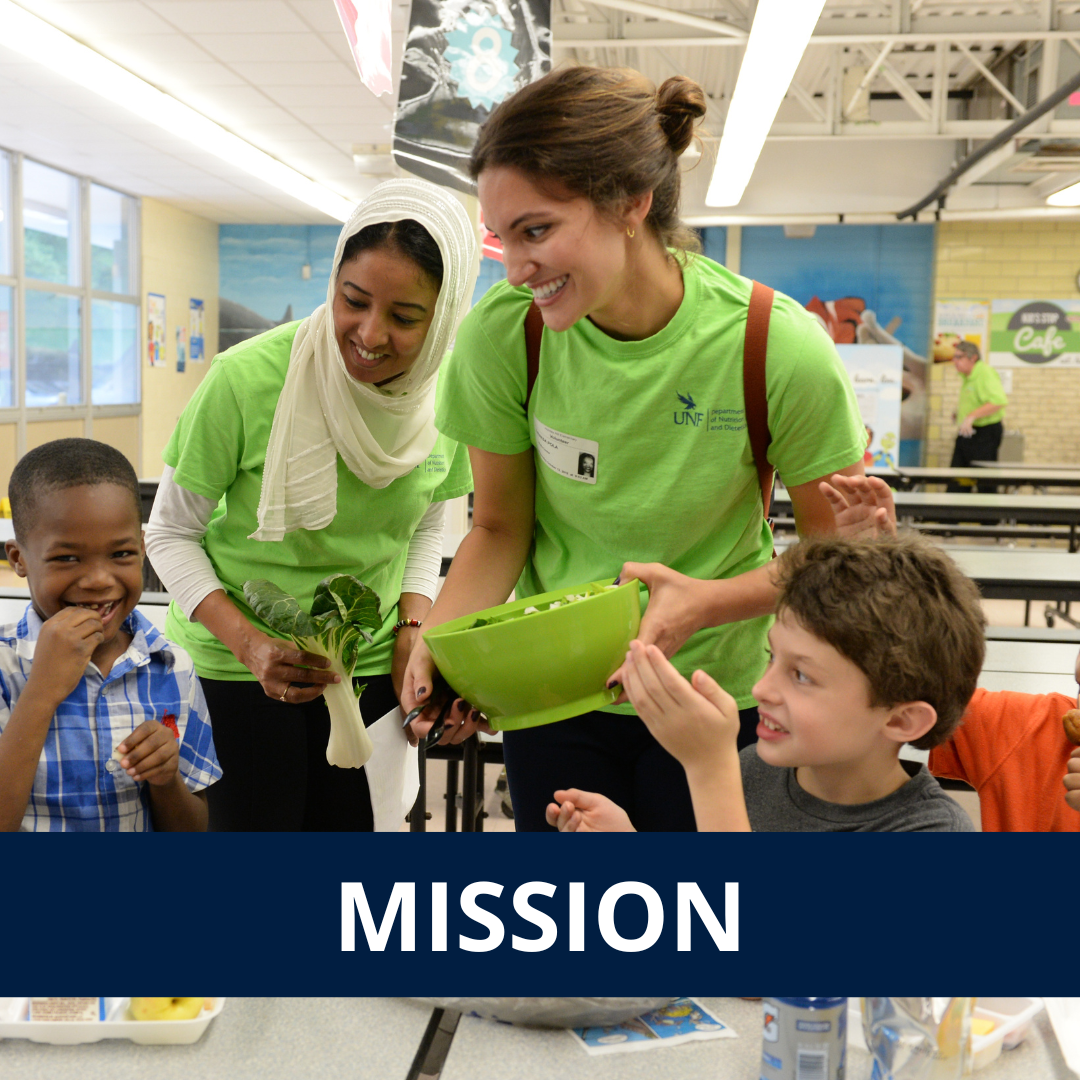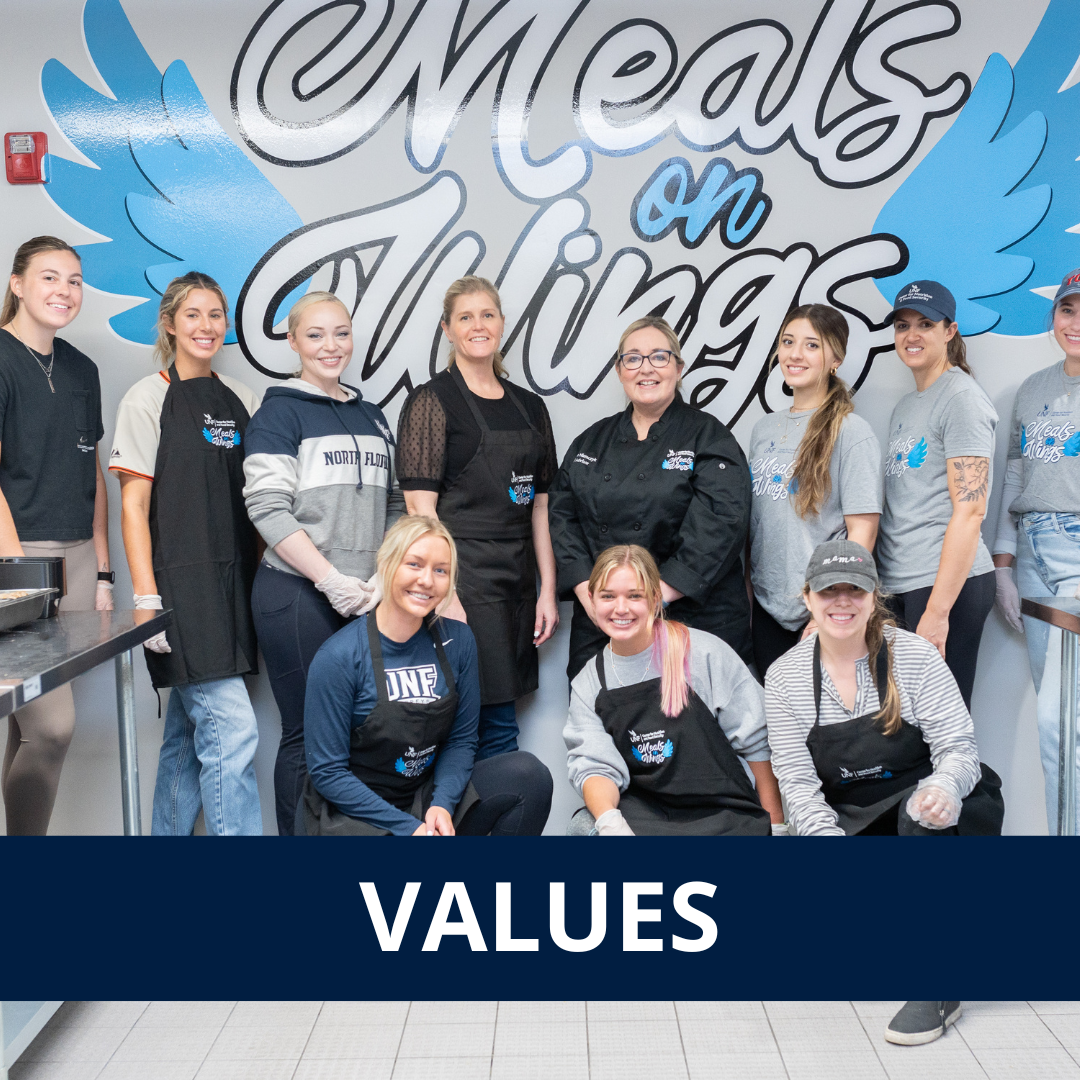Center for Nutrition and Food Security
Food insecurity is a local reality. In the United States, 1 in 6 Americans lack access to adequate healthy food. Florida and Duval County face even higher rates.
|
1 in 6
Americans
|
26.7%
Florida children
|
20.1%
Duval adults
|
The Center for Nutrition and Food Security strengthens community health by recovering wholesome food, expanding nutrition education and supporting neighbors through community-engaged programs.
Support the Kitchen ExpansionCommunity-Engaged Center Programs

Meals on Wings
Recovering surplus food from local hospitals and transforming it into ready-to-eat meals for homebound seniors across Northeast Florida.

Nourish to Flourish
Improving childhood health through nutrition education, food access and hands-on activities that build lifelong healthy habits.
Fueling community health starts in the kitchen
 |
Help UNF expand the CNFS Kitchen Lab to meet rising food security needs across Northeast Florida. As our community-engaged programs grow, we need more space to safely prepare meals, support hands-on student learning and serve more neighbors. ■ Increase meal production capacity ■ Expand experiential learning for UNF students ■ Strengthen community partnerships Support the Kitchen Expansion |
What Guides Our Work
Click an image to learn more about what guides CNFS.
Connect With CNFS
Whether you are a community partner, student, donor or neighbor, we welcome the opportunity to connect with you.
Support the Mission
Your gift provides critical funding for CNFS community-engaged programs beyond what state allocations alone can support.





